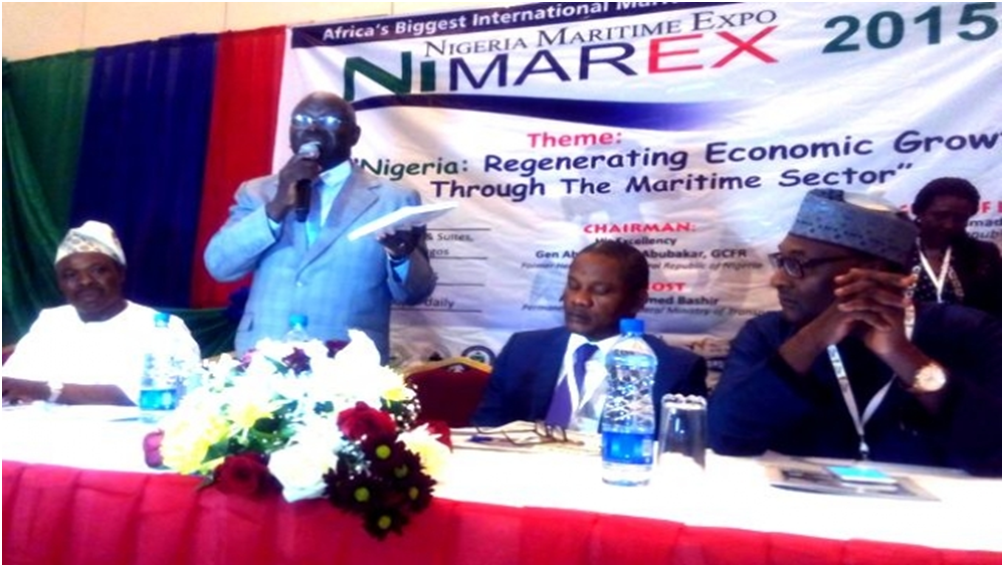
The Nigeria Maritime Administration and Safety Agency (NIMASA) has called for synergy among the indigenous ship-owners in the Nigerian maritime sector in order to attract the attention of the Federal Government.
The Director-General of NIMASA Patrick Akpobolokemi made this call at the 5th Nigeria Maritime Expo 2015 Conference, with the theme: “Regenerating Economic Growth through the Maritime Sector.” He noted that there were serious efforts by the Federal Ministry of Transport to look into the operational difficulties over the implementation of the Cabotage Act.
Represented by Barrister Kalystus Obi, Director of NIMASA Cabotage Maritime Labour Service, Akpobolokemi said emphasis was been made on the development of indigenous acquisition of vessels. “There must be development growth in individual capacity. The ship-owners should unite and it is only when they unite they can get the attention of the government,” he said
The rank of the indigenous ship-owners has been hit by crisis lately after the election of Captain Niyi Dada Labinjo to succeed Isaac Jolapamo as their leader.
Mr. Hassan Bello, Executive Secretary, Nigeria Shippers Council (NSC) in his remark at the event said that if Nigeria’s maritime industry must be well organized, “the government must consciously step into the industry and provide the environment needed for growth.”
He noted that investors were working under a harsh environment with no power for terminal operators, no good access road to the port and other terminals making clearing of cargos. “Government needs to address some of these issues, to enable the maritime sector make its expected contributions to the national economy. Maritime is the gate way to the economy. If we have good maritime sector, our economy will grow in term of redeployment, infrastructure and we will have to depend on modern transportation, which is the key,” he said.
Mr. Ayo Adedoyin, Chairman, NIMAREX 2015 Planning Committee in his opening speech listed the challenges in the maritime sector as funding for vessel acquisition and tonnage building, sundry equipment procurement and ancillaries. “We must find the trajectory to international funding and effective structuring of maritime banking funding; developing adequate maritime infrastructural and seeking dimensional approach to enforcing our maritime domain to check economic seepages,” he said.
He said NIMAREX was meant to provide solutions toward enhancing the economic fortune of Nigeria through deliberate and ambitious exploration of huge maritime resources of the country.
By Pita Ochai
[divider]

